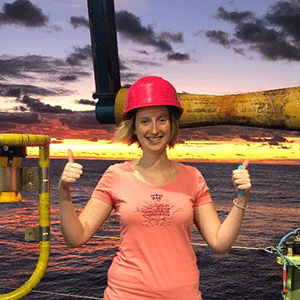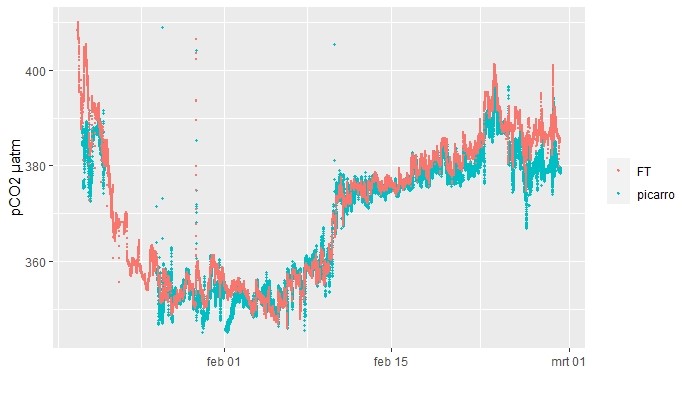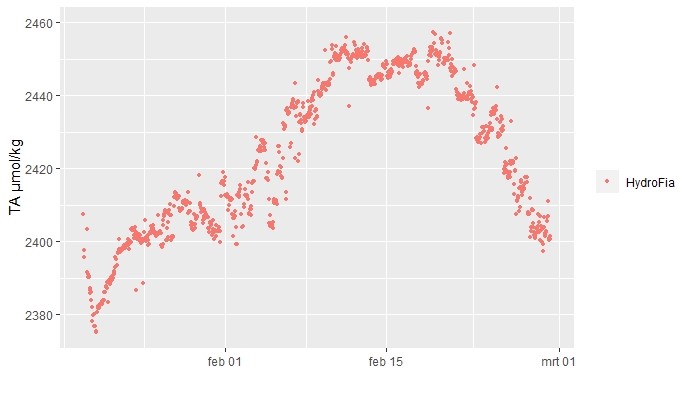Hello, I am Hannelore Theetaert, a marine chemistry lab technician working in the Flanders Marine Institute (VLIZ) in Ostend (Belgium) and having a BSc in chemistry.

In my job I am involved in ICOS (Integrated Carbon Observation System), and looking after two ICOS stations (the RV Simon Stevin and the VLIZ Thornton Buoy (class 1)) measuring carbon parameters in the coastal environment of the North Sea.
Back in November 2019 I applied for a CLASS fellowship to install and operate Underway (UW) systems for pCO2 and total alkalinity (TA) measurements during the JC191 CLASS GO-ship expedition from Florida to Tenerife. The setup on the vessel and the capacity to compare the UW systems with conventional analytical methodologies, allowed optimizing their performance, but also to improve my personal understanding of the biogeochemical processes around carbonate chemistry and carbon fluxes (air-sea, surface water - deeper waters) in the area and open-ocean in general.
The systems that were used were explained in a previous blogpost that was published during the expedition (The nightshift on JC191). Two systems were for pCO2 (a VLIZ custom-made system equipped with Picarro CRDS1 analyser and a Contros HydroC-CO2 FT system based on NDIR2 detection) and one system measured total alkalinity (Contros HydroFia-TA). The graphs below show preliminary data from the systems.
1 CRDS: Cavity Ring Down Spectroscopy
2 NDIR: Non Dispersive Infrared


I’m now processing and correcting the data, using relationships between the UW sensor data and manually collected spot samples collected from the CTD casts or the UW system. I also intend to submit the data to the international Surface Ocean CO2 atlas (SOCAT).
However, UW pCO2 and TA measurements was not the only thing I have been doing while on board the RRS James Cook. During the nightshifts, I was part of the oxygen and nutrients team led by Dr Edward Mawji, which was a very interesting, educating, fun and overall rewarding activity. Being part of this team it was interesting to share knowledge and learn new things!
This expedition was a great experience in many ways! The data looks good, I learned new things, laughed a lot and last but not least worked together for six weeks with nice people!
